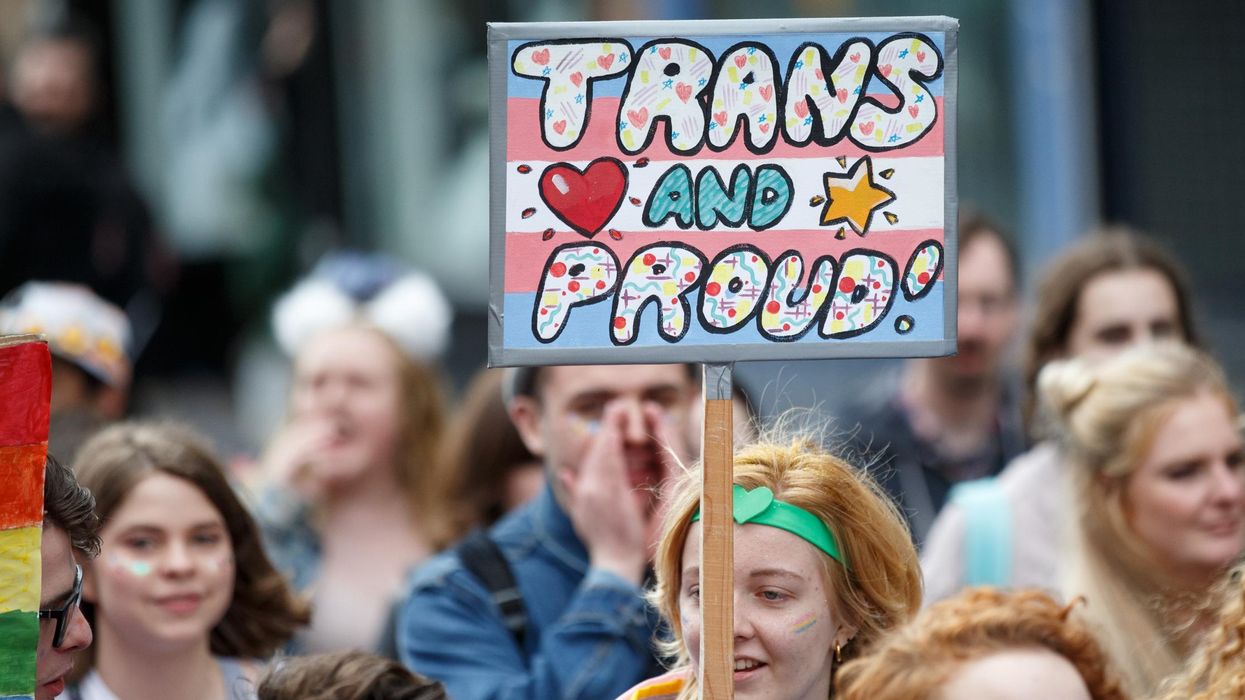Celebrities
Vic Valentine
Mar 16, 2020

Getty
When did you last see your birth certificate?
I imagine I’ll next need to hunt mine down when I get a new job. And whenever that ends up being, I am dreading it, because it’ll have my old name on it – one that I haven’t used for five years.
My birth certificate will also have an ‘F’ on it – something that is likely to cause confusion given that I’ve now been on testosterone for three and a half years, and am seen by the world as a man.
Thinking about handing it over to a new workplace, or anyone I don’t know, makes me feel like my stomach is tied in knots. Starting a new job and getting to know new colleagues is stressful and nerve-wracking for everyone. But knowing I will have no choice but to disclose that I’m trans and my old name to an employer before my first day even comes around? That makes the whole thing feel even more daunting.
So what can I do about it?
At the moment, given I live in Scotland, not very much. Because the current process that lets trans people like me change the sex on our birth certificates is very difficult.
Firstly, you’ve got to have a diagnosis of “gender dysphoria”. Unless you can afford to go private, that means waiting at least two years, sometimes as many as four, to see a psychiatrist at a Gender Identity Clinic. They may not feel they know enough about you to diagnose you at the first appointment – so that wait might be even longer.
Too often trans people who already have this diagnosis find themselves having to rejoin the long NHS queues to get one all over again just in order to change their birth certificate. That’s because the psychiatrists who diagnosed them moved jobs without ever joining the government's list of named doctors they will accept a diagnosis from.
You’ve also got to provide detailed medical reports of changes you’ve decided to make to your body. Or explain why you’ve chosen not to. This is even though there’s no requirement to take hormones or have any surgery to update your birth certificate – just a requirement to give intimate details about your personal health choices.
You’ve also got to provide evidence that you’ve been living as a man or a woman for two years.
This can be done in a few ways – firstly you show you’ve changed your name (unless you happen to have a very gender neutral one). You also show you’ve updated your other identity documents, like your driver’s licence and passport (this is much easier to do than updating your birth certificate, and you’re able to do it as soon as you start living as who you are). Finally, you then show you’ve been engaging with public bodies, employers, and organisations as a man or woman – by collecting together things like bank statements, pay slips and letters from your GP Practice.
You send all of this stuff to a tribunal of doctors and judges who never meet you, and decide whether to grant you permission to update your birth certificate.
Oh, and it costs £140 too.
For me, this is all complicated by the fact that even though I’ve done and got evidence of all of these things, as a non-binary person who doesn’t identify as a man or a woman, there’s no option for me anyway.
Much as the idea of handing over that birth certificate with an ‘F’ on feels awful, switching it to an ‘M’ wouldn’t be right for me either.
The law that governs this process is called the Gender Recognition Act.
That’s because changing your birth certificate is all about the Government legally recognising how you already live your life – not giving you permission to start doing so. You don’t apply to change it before you’ve come out to friends, family and colleagues. You don’t need to change it before you can start using public spaces and single-sex services that match who you are. But you do need to change it to make sure you aren’t put in the kind of situation I will be, the next time I start a new job.
This law really needs to change. Fortunately, the Scottish government is consulting on doing exactly that until tomorrow.
Please, help me and other trans people like me out by finding some time over the next couple of days to take part. We just want how we are living our lives to be recognised.
Vic Valentine is Policy Officer at Scottish Trans
Top 100
The Conversation (0)













